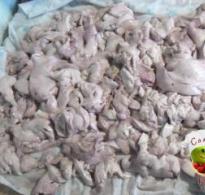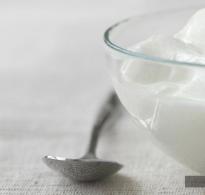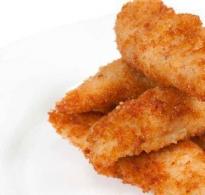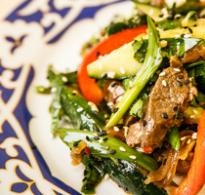Vegetable food profile. Food products from vegetable raw materials
The food industry in modern society is one of the promising industries that deserves worthy attention. According to many experts, it is strategically important. That is why, for the full development of this area, it is necessary to involve new educated people in the processes of industrial production of food products, with a mindset tuned to a new way of production and processing of crop products. Qualified specialists in this field would be able to turn the technology on an innovative path of development.
Introduction to the specialty
Students studying in one of the profiles of the profession "Food from vegetable raw materials" will deal with the following disciplines:
- fundamentals of food technology from crop products;
- the basic principles of organizing a healthy diet for the population of our country (the need and principles for promoting a healthy lifestyle and vigorous activity among the inhabitants of the Russian Federation, taking into account foreign experience);
- designing combined products (development of a healthy nutrition policy, technologies for the correct combination of raw materials for the manufacture of food products, norms of interchangeability and compatibility of raw materials, product morphology, etc.);
- fundamentals of technological production (basics of structural production);
- technochemical control of raw materials and food products (control of raw materials by quality indicators throughout its course in production);
- apparatus and processes of food production and processing (physical and chemical processes in production, as well as its technological equipment);
- food additives and improvers;
- food microbiology (composition of products according to microbiological indicators);
- automation of technological processes in the production of products from vegetable raw materials (replacement of the mechanical way of production with automated lines and conveyors);
- heat and cold engineering;
- processing of origin (technologies and processes for the transformation of crop products into familiar foodstuffs).
About a dozen more disciplines are added to this list, among which there are also general education (history, foreign language, chemistry), as well as hours of basic (educational), laboratory and industrial practice.
The following places can be chosen as places for students' internship:
- bakeries;
- breweries;
- confectionery factories;
- milk canning plants;
- fruit and vegetable canning plants.

Degrees and profiles of study
Education is carried out in two degrees: undergraduate and graduate.
In accordance with this, several profiles have been identified, on which all training is concentrated. The list of profiles also depends on the specific educational institution and its plan of work with students.
For a bachelor's degree, you can choose the profile "food microbiology" or from the category of technologies:
- bakery and pasta;
- fermentation and winemaking;
- alcohol and alcoholic beverages;
- brewing and non-alcoholic production;
- canned food and food concentrates;
- fats, essential oils and perfumery and cosmetic products.
For the master's degree, the profiles are as follows:
- drinks and canned products - scientific and practical bases for improving manufacturing technologies;
- technology of alcoholic and non-alcoholic drinks;
- bakery, confectionery and pasta - modern technologies;
- oil and fat products - improvement of manufacturing technologies, quality improvement;
- bio- and nanotechnologies in low-waste and safe production of wine, beer, alcoholic beverages and other drinks.

Where can you study?
To study food products from vegetable raw materials, a specialty can be obtained in various specialized educational institutions:
- Moscow Agricultural Academy. Timiryazev.
- Moscow State University of Technology and Management K. G. Razumovsky.
- Moscow State University of Food Production.
- Moscow Technological Institute "VTU".
- Southwestern State University.
- Kuban State Agrarian Institute.
- them. I. I. Polzunova.
As well as about three dozen other institutes, universities and academies throughout Russia.
Russian Agrarian State University
In the RGAU MCHA, the department of food crop production is part of the Faculty of Technology. Students, being on specialized training, learn:
- technology and rules of storage, as well as processing of crop products;
- terms and methods of storage, processing and merchandising;
- methods of quality management and merchandising of raw materials and products;
- types of processes and technological equipment of processing industries.
This faculty also has a specialized department of processes and apparatus for the production of raw materials processing.
Forms of study
Education in these educational institutions can be completed in the following forms:
- full-time;
- correspondence;
- part-time.
The period of study depends on the already existing knowledge, the presence of a certain specialty, which is confirmed by a diploma of graduation from an educational institution. For bachelors from 4 (full-time) to 5 (correspondence) years. For a master's degree from 2 to 2 years and 5 months.

What to study
Having passed all the stages of training in the specialty "Food products from vegetable raw materials", the specialist will easily solve the following tasks facing him:
- activities related to the production and technology of plant products (related to the computer and information technology industries);
- creation of conditions for quality control of products throughout the production path (research on quality characteristics);
- guaranteeing the output of products of the required quality and quantity (management of processes and the operation of the technical equipment of production);
- production management at food and processing industry enterprises producing a wide variety of products from vegetable raw materials (flour and cereals, bread and confectionery, sugar, essential oils, fermentation and wine products and drinks, conservation, baby and functional food);
- creation of conditions for increasing the profitability of production and rational use of raw materials and at the same time reducing the cost of energy and materials (work with innovative projects and rationalization);

- activities with personnel - increasing labor productivity through training and advanced training of employees;
- the opportunity to participate in innovative projects, developments related to direct activities;
- development of new technologies and technological schemes of production;
- participation in the accounting of raw materials and products from it by subjecting them to certification tests;
- solution of strategic and operational tasks related to the production of products from plant materials.

Code of the direction of training
The code of this specialty in training according to the new model is 19 03 02 - "Food products from vegetable raw materials." The old code is 260100 62.
Work in the specialty
Having received a diploma with such a profession, a qualified specialist also receives guaranteed employment in the profession. You will be able to work:
- managers and specialists in food production;
- experts and technologists of food enterprises;
- researchers in scientific institutions;
- teachers in specialized educational universities;
- Continue your education in your chosen field.

For a specialist in the field of food products from vegetable raw materials, a diploma promises work in the food industry or catering.
In what area will you have to work?
A qualified plant food specialist can work:
- in a number of firms engaged in the purchase or production and marketing, as well as merchandising of products of this type;
- in the field of laboratory research and quality control at customs for crop products imported into the country;
- in the field of agricultural business and related processing of vegetable raw materials;
- in the field of laboratory research on standardization and certification of products;
- in information and consulting services on the topic of crop production (storage, merchandising, processing and certification).
But in fact it is...
What metropolitan enterprises are waiting for you (for example, after graduating from RGAU Moscow Agricultural Academy):
- Ostankino meat processing plant.
- Cherkizovsky meat processing plant.
- Mikoyanovsk Meat Processing Plant.
- Cheese-making plant "Ichalkovsky".
- Combine "Ochakovo".
- Branch of PepsiCo in Moscow.
- Moscow tea factory.
- Wimm-Bill-Dann.
- Ice Cream Factory.
- Confectionery factories "Red October", "Udarnitsa" and "Yasnaya Polyana".
This list also includes:
- foreign processing enterprises (Germany, Sweden, the Netherlands, Slovakia and other countries);
- catering establishments - restaurants and cafes (including those in hotels and in the tourism sector) and many others.
Qualification: bachelor
- Training profiles:
- Technology of bread, confectionery and pasta
- Fermentation technology and winemaking
- Technology of canned food and food concentrates
- Technology of fats, essential oils and perfumery and cosmetic products
Description
The objects of professional activity of graduates of the direction 19.03.02 "Food products from vegetable raw materials" are the enterprises of the baking, pasta, confectionery, flour and cereals, fish, fruit and vegetable, food concentrate, fermentation, oil and fat, perfume and cosmetic industries.
For two years, students study according to a single curriculum. This enables them to more consciously choose the appropriate profile of further professional training on a competitive basis in the second year.
The profile "Technology of bread, confectionery and pasta" involves the development of technologies for the production of bakery and pasta. As well as the technology for the production of chocolate coatings, chocolate masses, chocolate, sugar and cream and flour confectionery. Students get acquainted with new raw materials in the confectionery industry: emulsifiers, stabilizers and other food additives for the confectionery industry.
Education on the profile "Technology of fermentation production and winemaking" involves the development of the production of beer, soft drinks and kvass, mineral water, alcoholic beverages, wine, baker's yeast.
Training on the profile "Technology of canned food and food concentrates" is associated with the development of the production of vegetable, fruit and berry, meat, fish canned food, sauces, ketchups, as well as quick-frozen foods, dry breakfasts (corn sticks, cereal flakes, muesli, etc.), fast foods cooking (soups, cereals, dry mashed potatoes, kissels, etc.), coffee and drinks and its base, spices, potato chips, crackers, various seasonings.
The profile "Technology of fats, essential oils and perfumery and cosmetic products" is associated with the development of technologies for the production of a wide range of products, including emulsion fat-and-oil products, such as mayonnaises and sauces, creams based on vegetable oils, food and biologically active additives. The peculiarity of this profile is that the graduate can realize himself not only in the food industry, but also in the perfumery and cosmetics industry, which produces cosmetic creams, soap (including handmade), shampoos, toothpaste, lotions and other cosmetics , essential oils.



Who to work?
Graduates of the direction 19.03.02 "Food products from vegetable raw materials" work as specialists of food industry enterprises of various forms of ownership: chief technologists, technologists, managers and laboratory assistants of testing and production laboratories, chemists-technologists, microbiologists, technologist-consultants in representative offices of domestic and foreign firms in production and sale of food additives and biologically active substances, operators of the main technological equipment, etc.
Employment
Bachelor's degree graduates in the field of "Technology of bread, confectionery and pasta" work at the leading enterprises of the confectionery, pasta and baking industry, such as: JSC "Nevsky Berega" St. Petersburg; Novosibkhleb OJSC, Novosibirsk, KDV Yashkino LLC confectionery factory, Novosibirsk Chocolate Factory CJSC, Kraskon Confectionery and Macaroni Factory CJSC (Krasnoyarsk) and many others.
Bachelor's degree graduates in the field of "Technology of fermentation and winemaking" work at industry enterprises such as Tomskoe Pivo, Fanagoria, Baltika, Efes, Bochkarevsky Brewery, Irbis, "Karachi source" and many others.
Bachelor's degree graduates in the field of "Technology of canned food and food concentrates" are employed at such industry enterprises as "SAVA", "Virtex", "Siberian cedar", "Astronotus", etc.
Graduates of the profile "Technology of fats, essential oils and perfumery and cosmetic products" work at the enterprises: OJSC "Novosibirsk Fat Plant"; Irkutsk Oil and Fat Plant; OOO "Art-Life", Tomsk, (production of cosmetics, dietary supplements, etc.); LLC AgroSibRazdolie, Barnaul; Pharmaceutical company "Al-tayvitaminy"; JSC Zhirovoi Kombinat, Yekaterinburg; OJSC "Crimean Rose", Simferopol and other enterprises of the industry.
The most common entrance exams are:
- Russian language
- Mathematics (profile) - profile subject, at the choice of the university
- Physics - at the choice of the university
- Chemistry - at the choice of the university
The sphere of production, processing and storage of food products, development of recipes and quality control of raw materials is the most important branch of human activity. Without it, the existence of food industry enterprises and catering outlets is impossible. Therefore, the specialty 19.03.02 "Food from vegetable raw materials" opens up broad prospects for further self-realization.
Such activities require the preservation of certain traditions and the development of professional culture. A modern specialist must be able to work with global computer networks in order to integrate new achievements from the industry into life and offer their own solutions to pressing problems.
Admission conditions
The program of this course involves the development of physical phenomena, chemical reactions, economic fundamentals in parallel with the development of creative abilities. Subsequently, the young specialist will have to apply the principles of humanitarian culture in life, keeping in mind the legal and ethical standards. But first of all, applicants are tested for knowledge of the exact sciences. What subjects do you need to take upon admission:
- mathematics (profile),
- Russian language,
- chemistry or physics by choice.
Future profession
The graduate of the direction will have the necessary skills to solve the following pressing problems:
- organizational moments when working in the field of quality control;
- development of new products, technologies for their production;
- research activities, mathematical modeling in order to optimize the production process;
- development of technical and project documentation;
- operation of equipment and control of compliance with environmental legislation.
Where to apply
The undergraduate program can be mastered in one of the universities in Moscow or in educational institutions in other regions:
- Moscow Agricultural Academy. Timiryazev;
- Moscow State Academy of Veterinary Medicine and Biotechnology. Scriabin;
- Moscow State University of Food Production;
- Moscow University of Public Administration;
- Bashkir State Agrarian University.
Training period
After the end of the eleventh grade, you can master the program for obtaining a bachelor's degree in four years if you choose a full-time department. Correspondence, evening and mixed forms involve five years of study.
Disciplines included in the course of study
 The future specialist in the process of mastering the course will get acquainted with the following subjects:
The future specialist in the process of mastering the course will get acquainted with the following subjects:
- electronics;
- electrical engineering;
- processing of raw materials of plant origin;
- physical and chemical bases;
- food microbiology and chemistry;
- cold and heat engineering;
- improvers and additives for food production;
- devices and processes of food production;
- introduction to product technology;
- sanitary norms, biomedical requirements.
Acquired Skills
A successful bachelor will master the following competencies:
- drawing up plans for the placement of technical equipment, equipment;
- organization of jobs;
- control of products coming from the supplier;
- calculation of raw materials consumption, equipment capacity and its loading;
- production of high-quality products based on raw materials of plant origin;
- process control;
- examination of finished products, their preparation for certification;
- marketing research;
- development and introduction of new types of products;
- preparation of measures aimed at preventing marriage;
- work on complaints;
- design;
- work on documentation.
Employment prospects by profession
Graduates of this direction can be engaged in various activities, ranging from the development of recipes and ending with the organization of production. Young professionals who have mastered this profession are in demand at public and private enterprises. It can be a bakery plant, confectionery, fruit and vegetable industry, catering points.
Before the bachelor, there is no special task of who to work with after graduation. He can apply for different positions:

After employment, you can count on a stable high income. On average, technologists with such education earn 35-40 thousand in domestic currency.
Benefits of applying to a master's program
The development of a master's program means for a young specialist the expansion of prospects in terms of professional implementation. Such training involves in-depth mastering of many important disciplines and practical training.
For example, students can work in laboratories and operating enterprises. Subsequently, they will be able to create innovative technologies and products, work in the teaching and research field.
Home > DocumentDIRECTION OF TRAINING
260100 Plant foods
Profile"Technology of fermentation production and winemaking". Qualification- bachelor. Graduating Department "Special Chemical Technology". Why do you need to go to study to get the profession of a technologist in this profile of training exactly at UGAES? The answer is obvious, since today in the republic only our university actively and fruitfully cooperates with industry enterprises and leading research institutes that conduct research in the field of developing new food products and improving technology. Together with outstanding scientists, authors of generally recognized textbooks, reference books and standards that are used daily at all enterprises in the industry, teachers of the Department of Special Chemical Technology, which trains bachelors in this direction, create new textbooks and manuals on the technology of alcoholic and non-alcoholic balms, syrups, carbonated drinks, alcoholic beverages and functional food. Annually in the all-Russian scientific and practical journals "Production of alcohol and alcoholic beverages", "Beer and drinks", "News of universities. Food technologies”, “Distillery production and winemaking”, the works of teachers of our department are published. The department annually carries out scientific research under the Grants of the Academy of Sciences of the Republic of Bashkortostan, senior students and graduate students of the department participate in these works. The results of their work are highly appreciated by society, our students have repeatedly become laureates of competitions for scientific works and have been awarded diplomas of various competitions, they are the owners of prizes and awards.Your profession
There are no trifles in food production. Any deviation from the recipe and violation of technology can lead not only to the rejection of a whole batch of products, but also cause irreparable harm to the health of the consumer. Whatever specific food production enterprise a technologist would work, by and large, his duties are the same everywhere: to prevent and solve all problems that may arise at various stages of food production. He monitors compliance with the sequence and quality of operations that make up the process of preparing products. The technologist also monitors the condition of the equipment, the quality of raw materials and semi-finished products, the sanitary condition of the apparatus and premises. Equipment breakdown, unforeseen delay in the supply of raw materials, insufficient packaging - any of these situations can have a deplorable effect on the quality of the product. The ultimate goal of the food industry technologist is to ensure high quality food products and preserve people's health. In general, a food production technologist is one of those positions for which professional education is the main selection criterion. Unlike a salesperson who needs persuasiveness and sociability, or a PR person whose activity depends on 70% of creativity, a technologist must clearly know why walnuts cannot be added to chocolates and what will happen to young wine if it is put on the shelves without aging in shops. To obtain this knowledge, students undergo not only theoretical training in classrooms and laboratories of the academy, but also in the production workshops of industry enterprises. Already from the first year, laboratory work and research are provided, thanks to which students get acquainted with the basics of the profession. Industrial practice is an integral part of the training of technologists.Career and salary
Today, the profession of a food production technologist is one of the most in demand in the labor market. Although there are a fairly large number of universities that train specialists in this field, however, many of their graduates prefer to work in other areas, because. There is an opinion that career opportunities for technologists are limited, and the level of wages is much lower than, for example, for graduates of economic specialties. In fact, due to the shortage that has developed over the 90s, a century has passed in the labor market for technologists, the demand for them exceeds the supply. Therefore, in large companies, the level of salaries of graduates-technologists is not inferior to the level of salaries of economists, and professional and career growth is often more dynamic. A recent university graduate comes to production as a foreman or junior technologist. Then successively goes through the following stages of growth: technologist, senior shift technologist, chief technologist. The top of the career ladder is the head of production.Approximate program of industrial practice training direction 260100 "Food products from vegetable raw materials" Training profile
Sample programThe objectives of the internship are to consolidate theoretical knowledge and practical acquaintance with production, to acquire by students the skills of engineering and technological work in production and, thus, skills and competencies
Food products from vegetable raw materials general characteristics of the main educational
DocumentThe goal (mission) of the BEP of the bachelor's degree is the development of students' personal qualities and the formation of a high level of a set of competencies that allow the graduate to successfully work in the field of processing plant materials, designing and improving
Annotation of the main educational program in the direction of preparation 260100. 62 Food products from vegetable raw materials
Documentimplementation of measures to improve the efficiency of production aimed at the rational use and reduction of costs of raw materials, materials, reducing the labor intensity of production,
The main educational program of higher professional education Direction of training (21)
Main educational program1.1 The main educational program of the bachelor's degree, implemented by the university in the direction of training 260100 "Food products from vegetable raw materials" and the training profile "Technology of bread,
Approximate program of the discipline educational and research work direction of training
Sample programThe objectives of mastering the discipline "Educational research work" is the theoretical mastering of the techniques and methods of research work and the acquisition of practical skills in setting and solving problems of scientific research.






